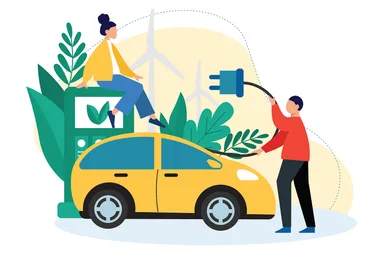So you’ve decided to buy a used car (Yay! Congrats! Go you!), but suddenly you’re realising there’s a little more to it than signing a few papers and driving away when you’re looking for a new ride online.
Like… how can you be sure it’s not a lemon? And how to you avoid being scammed??
Road worthiness aside, there are actually a whole heap of other things to consider when you’re shopping for a used car.
“The uncertainty of the second-hand market, along with the fear of buying a ‘lemon’ and the risk of scams, are valid concerns for any buyer,” explains Peter Willis, Director of Buying at Carma – an NRMA-backed online used-car platform that makes nabbing the ride of your dreams simple, efficient and safe.
Whether you’re in the market for an upgrade, a downsize, or something more a little more fuel efficiency, Peter has some expert tips for a stress-free used car shopping experience.
Tips for buying a used car.
1. Consider your budget.
Buying a car always starts with the budget, shares Peter – and yep, that makes a lot of sence.
There’s a lot to choose from in the world of used cars, from hatchbacks and SUVs, to off-roaders, and prices really vary depending on the type of car you’re after.
Thinking about your budget should always be your starting point to determine what you can afford, from the type of car to the features that it comes with – not to mentioned ongoing ownership costs.
Peter’s advice? Start flexible, have a maximum price in mind – and stick to it.
2. Cost of car ownership.
We mentioned the cost of car ownership – but what does that look like? Besides the purchase price, there are a few ongoing costs that can affect how much your car can cost. Here’s a quick breakdown:
Servicing costs
Regular maintenance can make a big difference in avoiding unexpected and preventable repairs. Your car’s age, make and model can influence how much your regular services cost.
Fuel economy
Different fuel types come with different costs. For example, diesel is more efficient than petrol, but can sometimes cost more than petrol.
If you’re looking to keep your fuel costs low, consider a smaller car or try out hybrids.
Insurance
Every car requires compulsory third-party insurance (CTP), which offers a basic third-party coverage while you’re insured. Want more protection? Comprehensive insurance covers a wider range of damage caused by insured events like accidents, theft or fire, and also has your back if you cause damage to someone else’s car or property.
Car finance repayments
If you buy your car with a loan, your weekly or monthly repayments will include the amount you owe on the car, plus any establishment or service fees depending on your financier.
Stamp duty and registration fees
All cars in Australia need to be registered with your state or territory’s Department of Transport, and stamp duty can apply when you transfer the registration to your name. You’ll have the option of paying your registration either annually, semi-annually and sometimes quarterly.
3. How will you use the car?
Before you start shopping, ask yourself what you’ll be using the car for. Is it primarily for daily commuting, weekend adventures, or simply the freedom to explore?
Thinking about what you plan to use the car for will help narrow down what you’re looking for, with factors like good fuel efficiency or boot space becoming some of your must-haves.
4. Know where you’ll park.
Parking is often overlooked in the car buying process, but this can significantly change your shopping choices.
Why so important? Well, you’ll want to a car that can fit in your driveway! But where you park your car – secure garage or street parking, in the city or suburban areas – can also affect your insurance quotes, so it pays to keep this in mind.
5. What kind of features are you after?
From keyless entry and push button start to autonomous emergency braking, there are plenty of advanced features to choose from even if you’re buying a used car.
If you’re tech-savvy, things like Apple Carplay or head-up displays might be important to you. Music lovers might want to prioritise the best in-car sound systems. Figure out what’s non-negotiable for you – and don’t forget to consider which safety features are your essentials.
6. Don’t skip the essential checks.
Finally, when you find the used car of your dreams, be sure to do a quick Personal Property Securities Register (PPSR) check to make sure there are no unwanted surprises after you’ve forked out your cash.
“A PPSR check can help you find out whether the car still has a loan against it or has been stolen or written off so doing your own checks just ensures your purchase is solid,” explains Peter.
“This is something we do on every car we select, so when you’re buying from Carma, you get that peace of mind.”
 Silver Screen Collection/Getty Images
Silver Screen Collection/Getty Images
